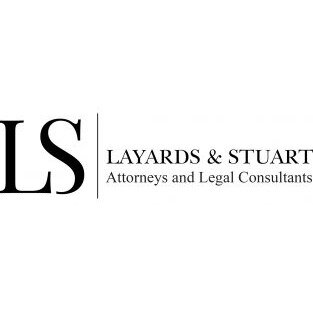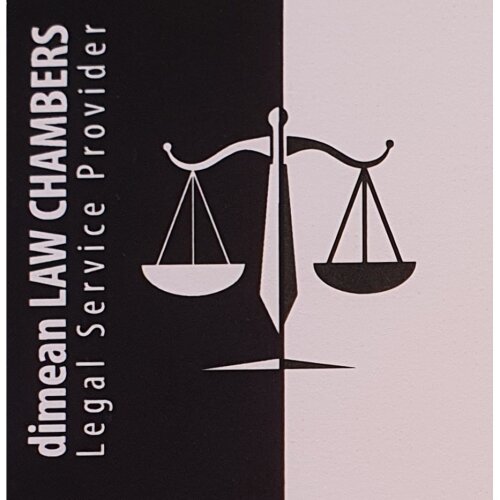Best Private Equity Lawyers in Colombo
Share your needs with us, get contacted by law firms.
Free. Takes 2 min.
List of the best lawyers in Colombo, Sri Lanka
About Private Equity Law in Colombo, Sri Lanka
Private equity refers to investment in private companies, typically through buying equity or shares that are not listed on public stock exchanges. In Colombo, Sri Lanka’s vibrant commercial hub, private equity has grown considerably in recent years, with both local and international investors seeking opportunities in sectors such as real estate, technology, manufacturing, and consumer goods. Private equity activity involves significant legal complexities, particularly concerning regulatory compliance, due diligence, structuring investments, and negotiating exit strategies. Understanding the legal landscape is crucial for both investors and local businesses seeking investment.
Why You May Need a Lawyer
There are several situations where individuals and businesses in Colombo may require legal assistance in private equity matters. Some common scenarios include navigating the negotiation and drafting of investment agreements, understanding the regulatory requirements imposed by the Central Bank of Sri Lanka or the Securities and Exchange Commission, resolving disputes between investors and founders, and managing cross-border investments. A qualified private equity lawyer can be invaluable in conducting due diligence, structuring deals to ensure tax efficiency and compliance with local laws, drafting and reviewing transaction documents, handling employment or intellectual property issues associated with the deal, and advising on exit strategies such as buybacks, secondary sales, or initial public offerings (IPOs). Engaging a lawyer helps safeguard your interests, minimizes risks, and ensures that transactions proceed smoothly and legally.
Local Laws Overview
Private equity activities in Colombo operate within a well-established legal framework. The Companies Act No. 7 of 2007 governs the formation and operation of private companies. Foreign investment is overseen by the Board of Investment (BOI) and may require specific approvals or be subject to sector-specific restrictions. The Securities and Exchange Commission of Sri Lanka regulates public offerings, reverse takeovers, and certain acquisitions. Anti-money laundering laws, particularly those under the Financial Transactions Reporting Act, also play an important role. Takeover and Mergers Codes provide guidelines for significant acquisitions. Additionally, tax laws and exchange control regulations may affect both the repatriation of proceeds and the structure of private equity transactions. Being aware of these legal aspects is essential for anyone involved in private equity in Colombo.
Frequently Asked Questions
What is private equity, and how does it work in Sri Lanka?
Private equity involves investing money directly into private companies in exchange for ownership stakes. In Sri Lanka, these investments are typically made by private equity funds, venture capital firms, or high-net-worth individuals seeking growth potential outside of public markets.
Who regulates private equity investments in Colombo?
The main regulatory bodies are the Board of Investment of Sri Lanka for foreign investments, the Securities and Exchange Commission for certain transactions involving securities, and the Central Bank for matters related to foreign exchange and anti-money laundering.
What legal structures are commonly used for private equity investments?
Typical structures include private limited companies, holding companies, and partnerships, depending on the needs of the parties and compliance with the Companies Act No. 7 of 2007.
Are there restrictions on foreign ownership in Sri Lankan companies?
Yes, some sectors in Sri Lanka have restrictions on foreign ownership, and certain transactions may require prior approval from the Board of Investment. It is important to review sector-specific limitations before proceeding.
What due diligence is required in a private equity transaction?
Legal due diligence generally covers corporate status, licenses, intellectual property, contracts, employment matters, litigation history, and regulatory compliance. This process helps identify risks and verify information about the target company.
How are private equity deals structured in terms of control and exit?
Deals are structured based on negotiations between the investors and founders, often involving shareholders’ agreements, management rights, and defined exit options such as buybacks, trade sales, or IPOs.
What are the tax implications of private equity investments?
Tax considerations include corporate income tax, withholding tax on dividends, capital gains tax, and stamp duty. Careful structuring can help optimize tax outcomes in compliance with Sri Lanka’s Inland Revenue Act.
How can disputes in private equity deals be resolved?
Common mechanisms for dispute resolution include negotiation, mediation, arbitration, or litigation in Sri Lankan courts. Many agreements specify arbitration in accordance with the Arbitration Act for quicker resolution.
What role does the Securities and Exchange Commission play?
The Securities and Exchange Commission regulates the public offering of shares, takeovers, mergers, and any private equity deals involving listed companies or securities transactions in Sri Lanka.
Is legal representation necessary for private equity transactions?
It is highly advisable to engage a lawyer who understands private equity law in Sri Lanka to ensure regulatory compliance, protect your interests, and facilitate smooth negotiations and transactions.
Additional Resources
- Board of Investment of Sri Lanka: Provides guidelines and approvals for foreign investment - Securities and Exchange Commission of Sri Lanka: Regulates securities markets and advises on compliance - Central Bank of Sri Lanka: Issues regulations on foreign exchange and anti-money laundering - Department of Registrar of Companies: Handles company incorporation and statutory filings - Sri Lanka Bar Association: Can assist with finding qualified lawyers experienced in private equity
Next Steps
If you are considering entering into a private equity transaction in Colombo, the first step is to consult with a lawyer experienced in this area of law. Gather all necessary financial and corporate information in advance. Identify the sector in which you intend to invest and check for any specific legal restrictions. Engage in initial discussions with your advisors about structuring, due diligence, and compliance requirements. Your lawyer can then assist you with negotiations, documentation, and regulatory filings to ensure a legally sound transaction. Staying informed and proactive will help protect your interests and maximize the success of your investment in Colombo’s dynamic private equity landscape.
Lawzana helps you find the best lawyers and law firms in Colombo through a curated and pre-screened list of qualified legal professionals. Our platform offers rankings and detailed profiles of attorneys and law firms, allowing you to compare based on practice areas, including Private Equity, experience, and client feedback.
Each profile includes a description of the firm's areas of practice, client reviews, team members and partners, year of establishment, spoken languages, office locations, contact information, social media presence, and any published articles or resources. Most firms on our platform speak English and are experienced in both local and international legal matters.
Get a quote from top-rated law firms in Colombo, Sri Lanka — quickly, securely, and without unnecessary hassle.
Disclaimer:
The information provided on this page is for general informational purposes only and does not constitute legal advice. While we strive to ensure the accuracy and relevance of the content, legal information may change over time, and interpretations of the law can vary. You should always consult with a qualified legal professional for advice specific to your situation.
We disclaim all liability for actions taken or not taken based on the content of this page. If you believe any information is incorrect or outdated, please contact us, and we will review and update it where appropriate.

















